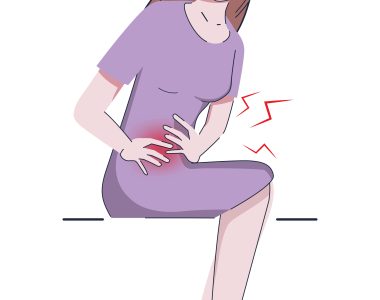Treating menstrual blood clots
How to treat menstrual blood clots
Menstrual clots are a mixture of blood cells, tissue from the lining of the uterine wall that is expelled from the uterus during menstruation. Menstrual clots are a normal part of menstruation.
How to treat menstrual blood clots:
- Eat a healthy diet and stay hydrated because heavy bleeding can affect your physical health. Eat a balanced diet such as iron-rich foods and eat and drink plenty of water.
- Take over-the-counter medication such as NSAIDs if you have no contraindications to it. Because it reduces the heavy bleeding, clotting and reduces menstrual cramp.
- Menstrual mood should not be too fluctuating. Girls enter puberty and begin to menstruate. This is a normal physiological phenomenon.
- Avoid strenuous exercise and manual labor, and achieve a combination of work and rest. Otherwise, the pelvic cavity will be further congested, resulting in heavy bleeding.
Is menstrual blood clot normal?
If the clots are small and only occasional, usually it is nothing to worry about. But abnormal clots are usually larger and frequent.
Causes of menstrual blood clot:
- Uterine obstruction
Obstruction can interfere with uterine contractions during menstruation. Therefore, the blood can pool and coagulate inside the uterus. Uterine obstructions can be caused by:
- Fibroids
- Endometriosis (Uterine lining grows outside the uterus)
- Adenomyosis (Uterine lining grows into the uterus)
- Cancer
2. Hormonal imbalance
The uterine lining during menstruation is influenced by estrogen and progesterone. Imbalance of these hormones can cause the bleeding to be clotted and heavy.
3. Miscarriage
Early pregnancy loss can lead to heavy bleeding, cramping and clotting.
4.Blood disorder
It might cause a heavy menstrual cycle and usually you bleed easily after a minor cut.
Can blood clots affect fertility?
Generally, the phenomenon of blood clots in menstruation blood of a woman is related to the amount of menstrual bleeding and bleeding speed. If a woman has a large amount of menstrual bleeding, the menstrual blood will be too slow, causing a clot to be discharged, and menstrual blood clot will also be related to the bleeding rate.
Anemia is a condition that can occur when there is not enough iron in the blood. Women usually will experience body weakness, paleness, shortness of breath and chest pain.
Therefore, if you want to know whether menstrual blood clots will lead to infertility in women, you should first understand the causes of menstrual blood clots. Menstrual blood clots associated with gynecological diseases, can lead to female infertility.





